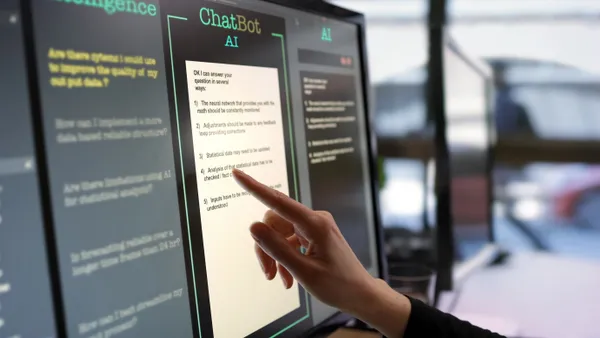Dive Brief:
- Instead of concerns that artificial intelligence (AI) may someday replace teachers, advancements in the technology, such as machine learning, can help educators address common classroom challenges, Robert Murphy of the RAND Corp. writes in a new paper.
- These challenges include differentiating instruction, giving students timely feedback on their writing, and identifying students who might not be on track for graduation. “Intelligent tutoring systems,” for example, can help students practicing “rule-based” content, such as facts, methods, operations and procedures — but they are less appropriate for “difficult-to-assess” skills like critical thinking, communication and collaboration.
- Automated essay scoring, while still controversial, can provide feedback on conventions such as grammar and sentence quality, and as they improve, early warning systems can more accurately identify students who might be at risk of falling behind. “The most prevalent use cases will continue to be blended forms of instruction, in which the use of AI applications is integrated into teacher-led instruction and classroom activities,” Murphy writes.
Dive Insight:
The teachers’ strike in Los Angeles was a powerful demonstration of the value of teachers and the limited role that computer-based learning programs play in the educational process. Students expressed how much they wanted their teachers back in the classroom, and their sentiments were echoed by principals and Los Angeles Unified School District leaders.
AI, however, does have some promising applications, Murphy writes, if developers make the way their products work transparent for school leaders, educators, parents and students. More research is also needed to understand whether machine learning adds value in the classroom, and whether bias or inaccuracies in the algorithms operating these systems are leading to unintended consequences.
For example, he wrote, if an early warning system's assessment of a student's risk for dropping out seems out of line with what a principal or counselor knows about that particular student, educators are not likely to trust the system. At this point, he concludes, “AI’s overall influence on instruction and learning will likely be modest relative to its influence in other fields.”















